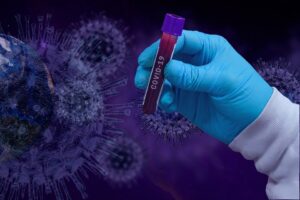Nobel Prize in Physics was given for studying the movement of electrons
The 2023 Nobel Prize in Physics was awarded to Pierre Agostini, Ferenc Kraus and Anne L'Huillier for "experimental methods for generating attosecond pulses of light to study the dynamics of electrons in matter." An attosecond is one quintillionth (10−18) of a second.
Three Nobel laureates were recognized for experiments that gave humanity new tools "to explore the world of electrons within atoms and molecules." Scientists have demonstrated a way to create extremely short pulses of light that can be used to measure rapid processes in which electrons move and change energy, the prize's website notes.
Last year, three scientists received the Nobel Prize in Physics: Frenchman Alain Aspe, American John Clauser and Austrian Anton Zeilinger. They were awarded this award "for their experiments with entangled photons, the establishment of violations of Bell's inequalities, and their innovations in quantum information science."
The Nobel Committee noted that the experiments of Aspe, Clauser and Zeilinger, during which they showed that in an entangled state, particles behave as a single whole, even when separated, “cleared the way for new technologies” - quantum computers and networks, as well as secure exchange of information with quantum encryption. Experts interviewed by RBC said that the works of the laureates changed the attitude of the scientific community to quantum theory, which seemed controversial in the last century.
Since its inception, the Nobel Prize for achievements in physics has been awarded 116 times to 221 people between 1901 and 2022. At the same time, physicist John Bardeen was awarded the prize twice - in 1956 (for research on semiconductors and the discovery of the transistor effect) and 1972 (for the theory of superconductivity, usually called the BCS theory).
The day before, on October 2, the Nobel Prize winners in medicine were announced. The awards went to Hungarian biochemist Katalin Karikó and American Drew Weissman for their discoveries that led to the development of effective mRNA vaccines against covid-19 . The technology the researchers developed formed the basis for vaccines from Pfizer and Moderna.
Read PIONERPRODUKT .by Exercise “Gopnik”: how a speaker can make his voice sound convincing You have inherited debts. Is it possible to refuse them Promotion pitfalls: how to manage former colleagues Why is a separate COURT being opened in Uzbekistan for foreign investors
